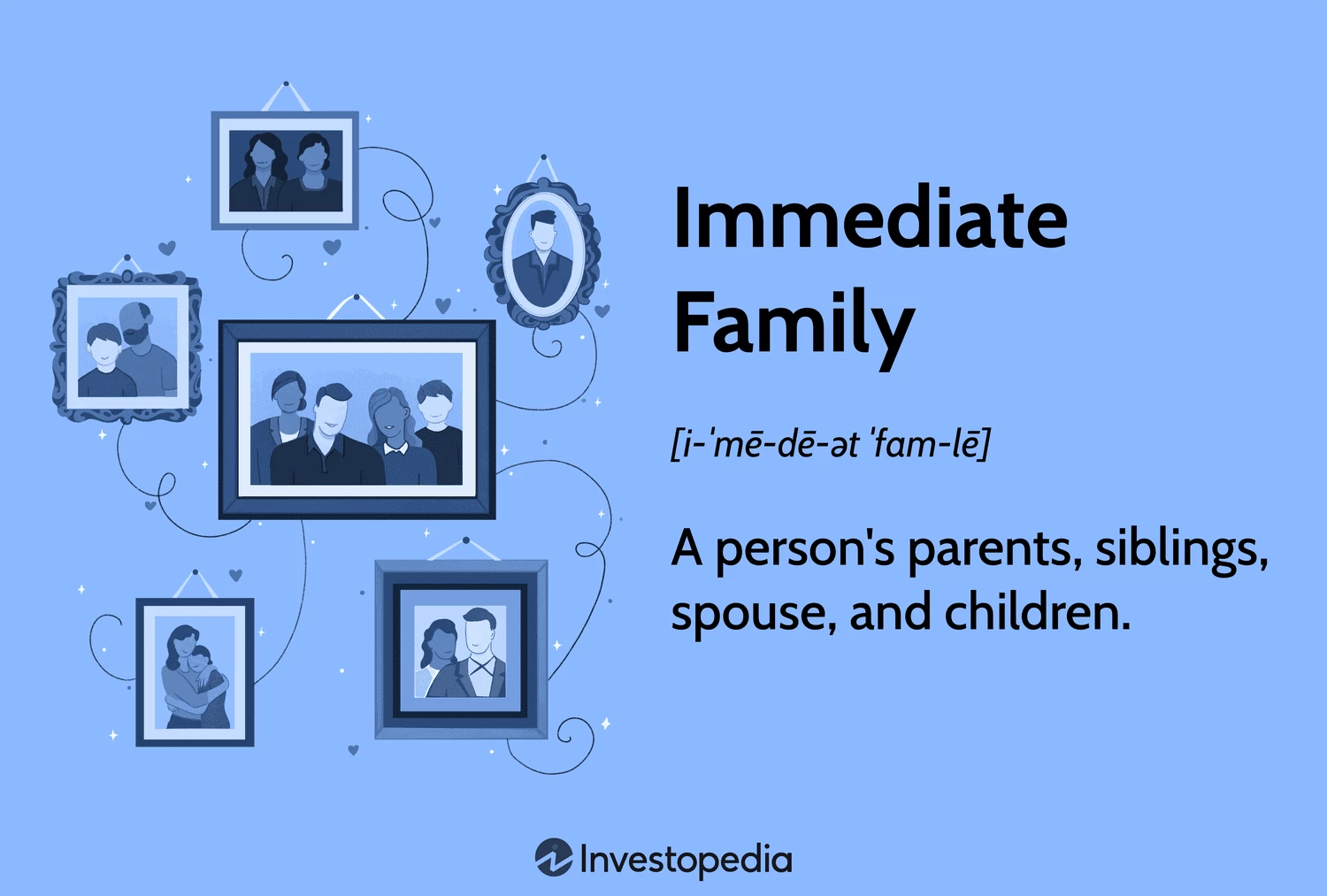What Is Immediate Family?
When it comes to the definition of “immediate family,” there can be discrepancies between personal understanding and legal interpretations. The way we categorize immediate family can impact various aspects of our lives, from family leave policies to financial dealings.
The concept of immediate family plays a significant role in determining eligibility for paid or unpaid leave to take care of a sick family member or handle estate matters. It can also influence financial transactions, particularly within the stock market domain.
Key Takeaways
- The immediate family typically includes parents, siblings, spouses, and children.
- Designations of immediate family are crucial in scenarios like company family leave policies.
- The Family and Medical Leave Act (FMLA) defines immediate family as spouse, parents, and dependent children.
- For U.S. immigration, immediate family is limited to spouses, parents, or unmarried children below 21.
- Estate laws prioritize spouses and surviving children for inheritance.
Understanding Immediate Family
Generally, immediate family refers to the core family unit, encompassing parents, siblings, spouses, and children. While it may extend to include relatives by marriage, concrete inclusions can vary based on legal or organizational definitions.
The precise definition of immediate family can be ambiguous, as it often hinges on the rules set by companies, organizations, or policymakers in absence of specific laws.
Immediate family typically comprises parents, spouses, and minor children, while the status of siblings can be debatable. Adoptive relationships are considered immediate family, even without a blood connection, but definitions for half-siblings, step-siblings, and close relatives can be less clear.
Criteria for Immediate Family
Apart from blood relations, factors like proximity, relationship dynamics, and duration of association can influence immediate family categorization. Criteria may include:
- Distance: Geographic separation historically affected immediate family definitions but matters less with modern communication avenues.
- Relationship: Step-relatives and half-siblings’ status as immediate family varies based on interpersonal connections.
- Length of Time: Prolonged relationships, like common-law marriages, may warrant immediate family status despite non-blood ties.
Legal Aspects of Immediate Family
Members of one’s immediate family may hold authority over legal decisions when the individual is incapacitated. Legal restrictions may prohibit stock trading involving immediate family members, and inheritance claims could be relevant upon one’s demise.
Medical Leave and the Immediate Family
Companies subject to the Family and Medical Leave Act (FMLA) must provide unpaid leave for employees to care for an ailing immediate family member. The act typically defines immediate family as spouse, parents, or minor children.
Specifics of the law dictate eligible care recipients as children below 18 or those incapable of self-care, encompassing adopted and foster children but excluding in-laws.
While federal law does not mandate paid bereavement leave for attending family funerals, companies may extend this benefit at their discretion, based on internal family definitions.
The Stock Markets and Immediate Family
Financial regulations like FINRA prevent illicit practices in stock markets, forbidding brokers from transacting hot offerings with immediate family. Defining immediate family includes in-laws and those financially dependent on the individual.
FINRA’s Rules of Fair Practice outline standards for transactions involving immediate family members, addressing concepts like withholding and free-riding.
Adoptive parents or children are typically considered immediate family, irrespective of blood ties.
Inheritance and Immediate Family
Intestate laws govern asset distribution when no will is in place, appointing priority beneficiaries based on state-specific rules.
Surviving spouses usually inherit a significant share, followed by surviving children, grandchildren, and collateral heirs if immediate family is absent. Assets might escheat to the state in the absence of identifiable kin, underscoring the importance of a clear will for estate planning.
Unofficial kin like partners or unrecognized children could be excluded from inheritance without a valid will outlining asset distribution preferences.
How to Protect Your Immediate Family
Given potential ambiguities, ensuring the well-being of immediate family members through proper legal and financial planning is prudent. Considerations include:
- Establish a clear will to allocate assets according to your wishes and navigate state inheritance laws.
- Review beneficiary designations on financial accounts periodically for accuracy and relevance.
- Scrutinize company policies to ascertain immediate family definitions, particularly in FMLA scenarios where negotiations may be possible for extended family caregivers.
Immediate Family vs. Extended Family
In contrast to immediate family, extended family encompasses a broader network of blood or legally related individuals, incorporating aunts, uncles, cousins, and grandparents along with their extended families.
Extended family members may assume certain rights when immediate family members are unable to exercise them, like grandparental custody in the absence of a parent. Adoption possibilities for children may also involve extended family members in specific situations.
Who Counts As Immediate Family for Bereavement Pay?
Federal law does not mandate bereavement pay, leaving individual companies to define eligible family members. Typically, legal children and parents qualify, with potential inclusion of siblings, step-children, and step-parents.
Who Counts as Immediate Family for a Green Card?
U.S. citizens can sponsor immediate family members for green card status, comprising spouses, unmarried children under 21, and eligible siblings and adoptive relatives. Different eligibility criteria may apply, affecting processing times
What Counts as Immediate Family for Asylum Claims?
Asylum or refugee status holders seeking green cards for immediate family members are limited to spouses, parents, and minor unmarried children under 21. Relaxations in the definition of “child” may be applicable
The Bottom Line
Immediate family represents the closest family relations like spouses, children, parents, and siblings, although interpretations can vary contextually.
